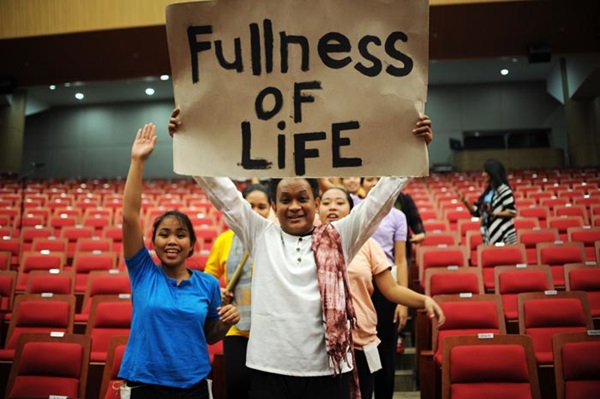A new generation of ecumenical Christians has engaged preeminent issues of contemporary global Christianity in a new publication from Globethics.
The new volume, edited by David Field and Jutta Koslowski, probes themes and questions explored at the World Council of Churches (WCC) 10th Assembly, held in Busan, Republic of Korea, in 2013.
The work stems from the Global Ecumenical Theological Institute (GETI), a gathering in Korea of 200 students from 60 different countries and 80 different denominations, along with another 200 from Korea before and during the assembly. The institute afforded an opportunity for students to learn about the history and present of the ecumenical movement, encounter Christians from a variety of confessional and regional areas, and interact with assembly delegates at the assembly itself.
The GETI participants tackle a full range of current topics in the 15 chapters of the volume. Those topics range from the radically altered picture of global Christianity at the beginning of the 21st century to the evolving understandings of unity and mission, and the sharp challenges to justice and peace presented by ongoing division in Korea, migration, human rights and religious freedom.
The volume, entitled Prospects and Challenges for the Ecumenical Movement in the 21st Century: Insights from the Global Ecumenical Theological Institute, ed., David Field and Jutta Koslowski, is number 12 in the Globethics.net Global Series.
Globethics is a partner of WCC Publications, the book publishing program of the World Council of Churches. It facilitates global Christianity's "alternative voice" and enhances the larger visibility and cultural presence of the ecumenical movement.
World Council of Churches website
One of seven apportioned giving opportunities of The United Methodist Church, the Interdenominational Cooperation Fund enables United Methodists to share a presence and a voice in the activities of several national and worldwide ecumenical organizations. Please encourage your leaders and congregations to support the Interdenominational Cooperation Fund apportionment at 100 percent.





